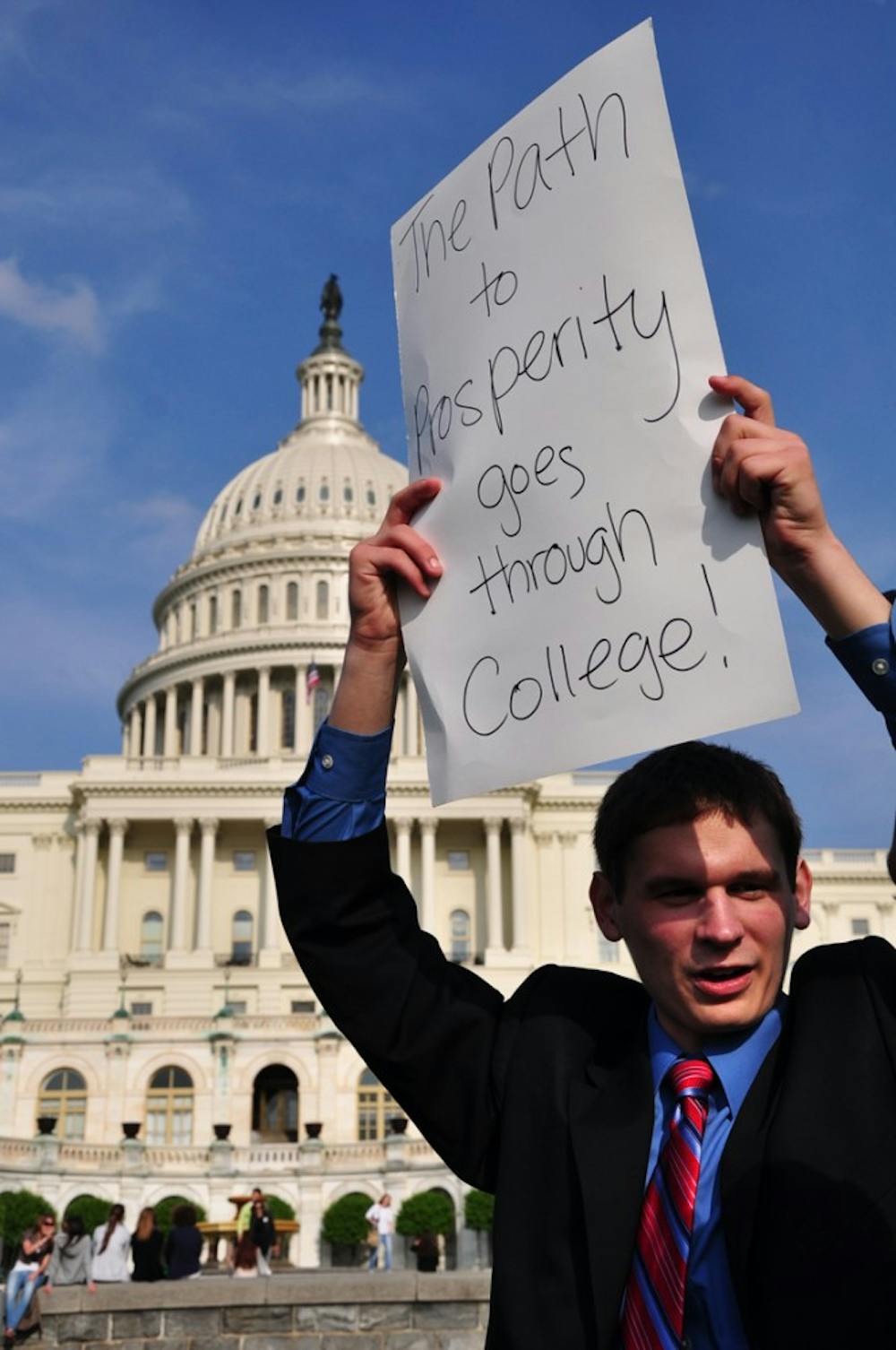Congressional cuts to the year-round Pell Grant program could have a ripple effect for American students even if they are not eligible for Pell Grants.
If AU receives less federal money to distribute as Pell Grants, the University will have to use funds from its existing financial aid to cover Pell-eligible students. This leaves those who qualify for need-based financial aid, but not the Pell program, with less aid from the school.
More than nine million students nationwide receive aid through the Pell program, according to U.S. News and World Report. Of those, 1,043 AU students received a total of $4 million in Pell Grants for the 2010-2011 academic year, according to Brian Lee Sang, director of the Office of Financial Aid.
“To lose something like $4 million is not sustainable,” Sang said. “It’s a very hard thing for the University to swallow or try to make up.”
Cuts would restrict certain students from attending AU, according to Sang.
“To increase the amount of economic diversity, you want to bring the best and brightest students to AU and students who fit the culture of AU,” he said. “The last thing any financial aid office wants to do is to limit the quality of students or limit the opportunity of students to contribute to the AU culture based upon finances.”
Students with family incomes of $60,000 or less may be eligible for Pell Grants. Unlike a federal loan, Pell Grants do not need to be repaid. To apply for the grant, students fill out the Free Application for Federal Student Aid (FAFSA).
The new Congressional budget will forbid students from receiving two grants per year and from using Pell Grants for summer courses, according to the U.S. News and World Report. These changes will decrease the cost of the Pell program for the next year, according to the resolution.
Still, while the budget cut year-round Pell Grants, it maintained the maximum Pell Grant award at $5,500, according to Education Week.
A group of 40 local college students protested the cuts outside the Capitol April 15.
The D.C. Federation of College Democrats organized students from AU, Georgetown University, Marymount University, George Washington University, Howard University and Trinity College.
The group of student protestors was small but vocal, with chants such as, “College students out of luck, Boehner doesn’t give a f***.”
Matt Lien, a freshman in the School of Public Affairs, attended the protest as a member of D.C. Students Speak, a D.C. university student advocacy group that co-sponsored the event.
“I think Pell Grants got lost in the shuffle and they shouldn’t,” Lien said. “Even though it’s a relatively small amount of money per student that Pell Grants give, it makes a big difference. It could mean the difference between going to college and not.”
lgiangreco@theeagleonline.com





